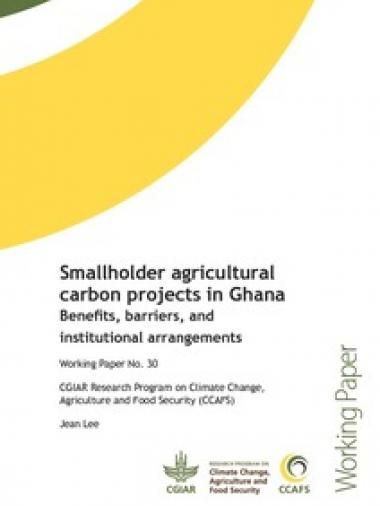Smallholder agricultural carbon projects in Ghana: Benefits, barriers, and institutional arrangements

Climate mitigation projects that involve smallholder farmers may provide solutions for decreasing agriculture’s role in global greenhouse gas (GHG) emissions. Farmer involvement in the development of agricultural climate change mitigation projects is essential if projects are to be sustainable and to ensure projects do not compromise farmer livelihoods and food security. This paper profiles four ongoing agricultural carbon projects in Ghana with in depth comparative analysis highlighting their differences and similarities.
The purpose of this research was to provide a snapshot of the current state of climate mitigation projects in Ghana that are reducing agricultural GHG emissions while also helping smallholder farmers support their livelihoods and adapt to climate change. The projects use a variety of incentive mechanisms to promote on-farm conservation measures, including tree planting and conservation agriculture. The projects aim to provide both short-term and long- term benefits; however, participation requirements pose barriers for some farmers. Institutional arrangements (e.g. contracts, land tenure, farmer organizations) can affect the costs, risks, barriers, and incentives farmers encounter in participating and benefiting from climate mitigation projects. Future research and attention to project design has the potential to clarify the role of carbon markets and certification in agricultural mitigation projects and ensure that benefits are distributed fairly.
Citation
Lee J. 2012. Smallholder agricultural carbon projects in Ghana: Benefits, barriers, and institutional arrangements. CCAFS Working Paper no. 30. Copenhagen, Denmark: CGIAR Research Program on Climate Change, Agriculture and Food Security (CCAFS).